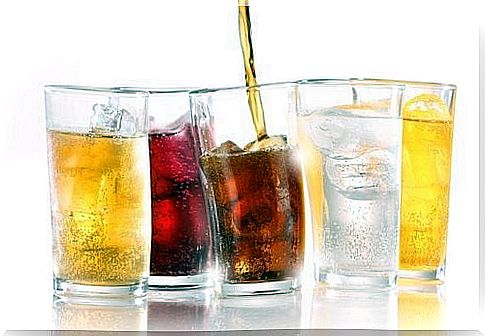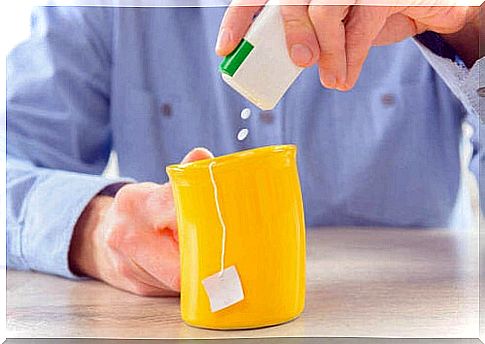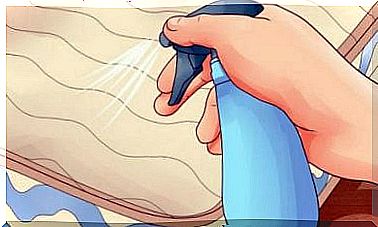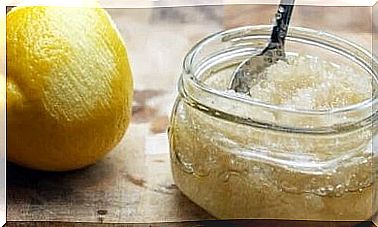Do Sugar-free Soft Drinks Make You Fat?

We can directly say that sugar-free soft drinks are largely replacing sugar-containing soft drinks. Concerns about overweight and obesity have indeed made us choose low-calorie or completely calorie-free drinks, but is it true that sugar-free soft drinks can also gain weight?
First of all, it is worth bearing in mind that soft drinks should under no circumstances replace water as a hydrated drink to ensure the proper functioning of our bodies.
Sugar-free soft drinks
Risks of sugar-free soft drinks
A sugar-free soft drink is a drink from which sugar is completely removed and replaced with alkaline sweeteners such as aspartame, saccharin or cyclamate. Although a sugar-free soft drink does not contain any calories at all, the sweeteners present in the drink favor the absorption of sugar in the intestine.
In addition, sugar-free soft drinks promote insulin secretion in the same way as sugar-containing drinks. This condition, in turn, causes a drop in blood sugar levels, which in turn creates a feeling of hunger. Rapid increases and decreases in blood sugar, or spikes, can lead to unhealthy meal choices, which in the long run can also begin to show up at the waist. In addition, a drop in blood sugar causes fatigue and malaise, which in turn causes a person to indulge in sugary and calorie-rich treats.
Sweeteners also affect the gut’s own flora and can alter bacteria in the body, causing, for example, glucose intolerance or dysbiosis, where more bad than good bacteria end up in the gut.

Sugar-free soft drinks and weight
The relationship between sugar-free soft drinks and weight is increasingly being studied. The aim of these studies is therefore to obtain more information on whether sugar-free soft drinks are fattening, as this is a highly controversial topic.
Recent research of the American publication, s ugar and the Artificially sweetened beverages linked to obesity: a systematic review and meta-analysis (connected with obesity sugar and artificially sweetened drinks: A systematic review and meta-analysis) has shown a link between the consumption of sugar-free soft drinks and obesity.
At this stage, however, it is good to clarify that this study does not distinguish between the consumption of sugary soft drinks and those that do not contain sugar. The results thus show that the consumption of soft drinks, whether or not they contain sugar, is higher in obese individuals.
Other research also suggests that sugar-free drinks may increase obesity risk but also the risk of cardiovascular disease, but a clear mechanism for this reason, has not yet been found.
On the other hand, we can also find studies like Plos One that have shown a link between the consumption of sugar-free soft drinks and higher levels of belly fat. Indeed, this study has raised suspicions that sugar-free and calorie-free soft drinks may not be effective alternatives for weight management.
Why can sugar-free soft drinks make you fat?
Effect of compensation
Sugar-free drinks may not fatten on their own, but they are associated with unhealthy lifestyles.
Many of us probably think that the calories we save by eating sugar-free and calorie-free drinks can be used in good spirits for another delicacy, which in turn contains more calories. This phenomenon occurs especially in fast food restaurants. In other words, treating with a burger, french fries, hot dog, or fatty pizza doesn’t make a meal choice any healthier, even if you supplement your meal with sugar-free or calorie-free soft drinks.

Sugar-free soft drinks increase the feeling of hunger
As we have mentioned before, sugar-free soft drinks can also trigger a feeling of hunger, as their consumption stimulates the secretion of insulin, which in turn causes a drop in blood sugar levels.
In other words, our bodies react to sugar-free soft drinks in the same way that they contain sugar. The only difference between sugar-free and sugar-containing beverages is therefore that the presence of sugar in sugar-free beverages is non-existent and therefore cannot be absorbed by the body.
Sweet is addictive
Science has also shown this: by consuming very sweet foods, whether they themselves contain sugar or sugar substitutes, the sweet taste of food or drink often activates those areas of the brain that are associated with enjoyment and reward. This in turn leads to an addiction to very strong tastes and sensations.
We also know that the feeling of well-being in the brain caused by sweet foods is so significant that it can even be compared to the feeling of well-being brought by drug use, and for this same reason we tend to be more personal to sweet treats.
Finally
If we want to lose weight, the most logical option at first glance would seem to be that sugary drinks should be replaced by sugar-free alternatives. So far, it has been seen that sugar-free soft drinks in safe doses are safe, and consuming them does not add extra and unnecessary calories to the diet.
However, science has shown that regular consumption of sugar-free soft drinks does not help with weight management, as they can lead to an increased feeling of hunger and make us eat more, while increasing the amount of dangerous belly fat.
Weight gain is a relatively complex process for which we cannot blame one particular food, drink or sugar. Fresh water should always be considered the main drink, both during and outside meals.
What if we want to indulge in a soft drink every now and then? Which option is better in the end; sugary soft drinks or sugar-free soft drinks? In short, we can say that if these soft drinks are consumed only occasionally, you may as well choose sugar-free and calorie-free soft drinks, as in small quantities they do not have a negative effect on our health.









